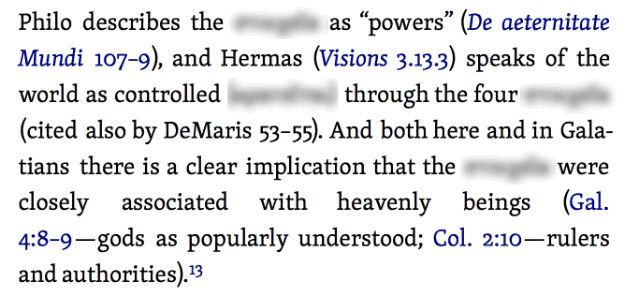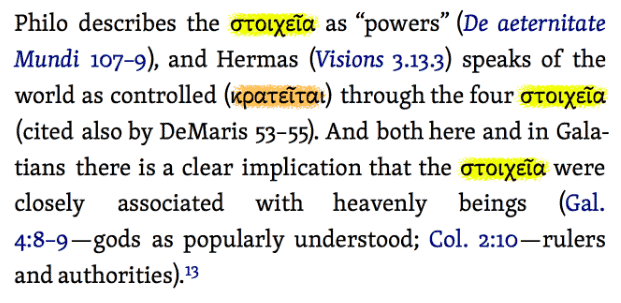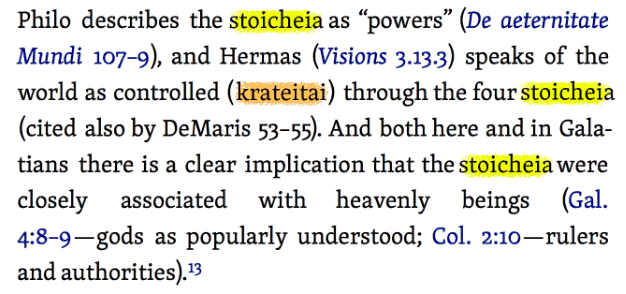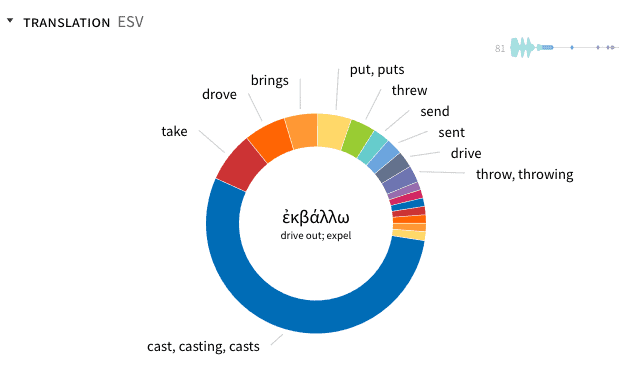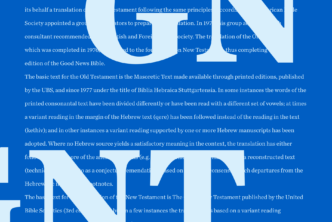You want to start studying New Testament Greek? In a previous post, I talked about good and bad motivations for the work. Now let’s get more practical and talk goals.
If you set unrealistic goals you’ll never arrive at them. You’ll get discouraged and give up, and you won’t want to try again. And if you set goals that are too low, you’ll be missing out on some Bible study riches.
So set the right goals. Let me suggest three goals you should not set, and three goals you should.
First, here’s three don’ts.
1. Don’t aim to make the Greek Bible your main bible.
My editor studied Greek in seminary and says he made this his goal—and was immediately discouraged. I came into Greek study with a smattering of Latin and a good bit of Spanish. I could communicate in Spanish, but the easiest things to do were to listen to it and read it. Those are probably not practical goals to set for Greek study. At least not yet.
Spanish is close enough to English in structure and vocabulary that a fairly beginning student can gain some genuine reading fluency quickly. Greek is further from English, especially in its case system and the resulting flexibility in its sentence structures. Smooth reading of Koine Greek is not a practical goal for most people studying on their own.
2. Don’t aim to learn Greek in six months.
What does it even mean to “learn Greek”? To learn Greek well enough to use it effectively at a basic level will probably take the average person with a full-time job and a life at least a year. Consider setting at least a one-year time horizon. You can evaluate at that time whether or not you have met the other goals you’ve set—or if you’d like to set more.
3. Don’t aim to contribute to Greek scholarship.
Let’s just get this one out of the way for now. You’re free to add it back in later, because it’s not a bad goal in itself. But with rare exceptions—people who already know who they are—you can’t know now whether contributing to the scholarship on Koine Greek is your calling until you dig into it further.
Now three good, practical goals:
1. Do aim to read Greek words out loud.
Here’s a realistic, attainable, and excessively practical reason to study Greek: try to get to the place where you can read Greek words out loud—I mean recognize and pronounce words written with Greek characters, whether or not you’ve learned them.
If you can’t read Greek words, a section of the New International Greek Testament Commentary on Colossians will look like this to you:
Even if you have no idea what the Greek words mean, being able to read them “out loud” will help you follow the argument. You’ll see that one word gets repeated three times.
But, really, learning to read the Greek words out loud will make the section look like this to you:
Can you see how one skill alone would enable you to access Bible study resources and follow arguments that are opaque (or fuzzy) to you now?
2. Do aim to learn all the vocab words used over 100 times.
That’s 173 words, common words (by definition) from “the” to “God” to “through” to “give” to “speak” to “age” to “put”—the last of which happens to occur exactly 100 times in the New Testament (an exciting factoid useful at parties when it’s time for the guests to go home).
How many Facebook friends do you have? Do you know most of their names by heart? Yes? Then you can learn 173 words. Doing this will keep you from having to look up every last word you come across. In a way, you’ll learn more words, too—because you’ll start seeing roots that are used elsewhere. Ballo means “throw,” and ek means “out,” and these are part of the 173. So guess what ekballo means? It’s not on your vocab list (it occurs only 81 times in the NT), but you’ll get it immediately if you learn the words that are on the list: ekballo means “throw out.”
3. Do aim to use Logos to do Bible study with Greek.
You can search for Greek words using Strong’s numbers even if you can’t read those Greek words. But just reading Greek words and having a basic grasp of vocabulary will make it much, much more comfortable for you to use Greek in Logos Bible Software.
Logos, for example, makes it easy to search for every instance of any given Greek word in the New Testament and in the Septuagint. And tools that do this work, such as the Bible Word Study, are much more accessible when you can read the Greek words in the middle of the ring graphs:
Logos also has tools for learning those 173 vocab words you’re going to learn.
And Logos makes it dead simple to look up in a lexicon (a dictionary) whatever Greek word happens to be underlying whatever English word you happen to be studying. If you can right-click, you can use Greek in Bible study.
There are riches in them θάρ hills. Go East, young man.
***
Related articles
- Learn Biblical Greek
- A Simple Way to Study Biblical Greek—Whether or Not You Know Greek
- Why I’m Using Logos to Learn Greek—and Loving It
- 6 Resources That Will Help You Learn Biblical Greek and Hebrew
- 3 Reasons to Study Greek, and 3 Reasons Not To
- What Does the Greek Word Logos Mean?
Related resources
- Biblical Greek Foundational Certificate Program
- Basics of Biblical Greek (Workbook) by William D. Mounce
- Basics of Biblical Greek (Video lectures)
- Reading Biblical Greek (Video lectures) by Constantine R. Campbell
- Faithlife Greek Grammar Onthology


